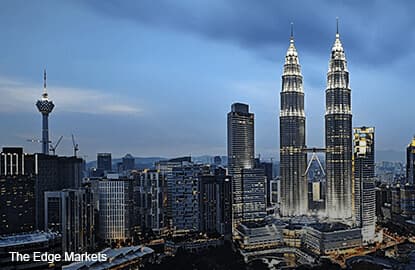
KUALA LUMPUR (March 2): Malaysian Investment Development Authority (MIDA), a government-owned promotion agency, saw total foreign direct investment (FDI) in the country fall by 5% to RM41.18 billion in 2016, compared to RM43.44 billion in 2015.
"The decline was due to lower investment in the manufacturing and primary sectors," International Trade and Industry Minister Datuk Seri Mustapa Mohamed said in a briefing in here today.
"Malaysia has been more selective in its investment agenda, preferring quality projects in targeted ecosystems that will have a significant knock-on and multiplier effect throughout domestic economy," he added.
The decline in the country's FDI, said Mustapa, was in line with the global FDI inflow, which slowed by 13% to US$1.52 trillion in 2016 from US$1.7 trillion a year earlier.
China was the largest contributor to the country's FDI last year, with RM4.7 billion of committed investments, followed by Netherlands (RM3.2 billion), Germany (RM2.6 billion), United Kingdom (RM2.6 billion), South Korea (RM2.2 billion) and Singapore (RM2.1 billion).
As for total investments in the country, MIDA clocked in RM207.9 billion in 2016, a 7.7% increase from RM193 billion a year ago, driven by investment in the services sectors.
According to MIDA, the ratio of foreign and domestic investment is still healthy, with 71.6% or RM148.9 billion generated domestically, while the balance 28.4% or RM59 billion came from foreign investors.
"United States, Netherlands, China, Japan, Singapore, South Korea and the United Kingdom," Mustapa said, adding that together, these seven countries jointly accounted for 55.8% of total foreign investments in the three core areas: manufacturing, services and primary sectors.
Last year, investment in the manufacturing sector fell by 21.7% to RM58.49 billion from RM74.69 billion in 2015, while total number of projects increased to 733 from 680 a year ago.
"The investment numbers looked big in 2015, but that was bumped up by two lumpy projects in Pengerang, Johor, and Sarawak," explained Mustapa, who foresees investment in manufacturing activities slowing further to RM55 billion this year.
"We have some mitigating strategies to support activities in the manufacturing sector, which include increasing efforts to develop and enhance local supply chains to support the multinational companies," he added.
As for the services sector, Mustapa said investment activities continued to rise to RM141.21 billion in 2016 from RM114.55 billion in 2015, anchored by key real estate projects.
"In 2017, we see investment in the services sectors to come in at RM75 billion, with global establishments, healthcare, education and hospitality to be the main key driver," said Mustapa, who “prefers to give moderate targets as opposed to ambitious ones”.
"Despite the volatilities, we are off for a good start this year, the latest of which is (the) collaboration between Petronas and Saudi Aramco which has committed [an investment of] US$7 billion," he concluded.